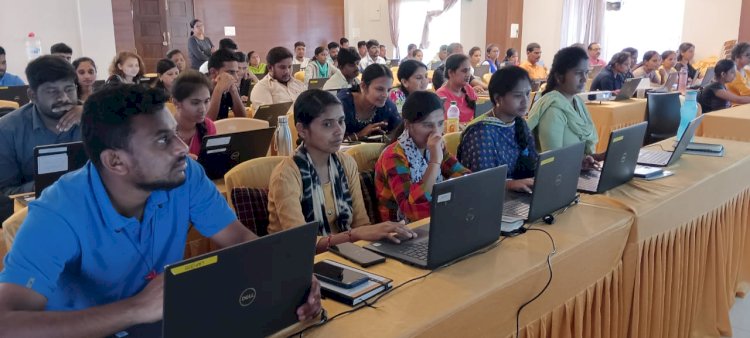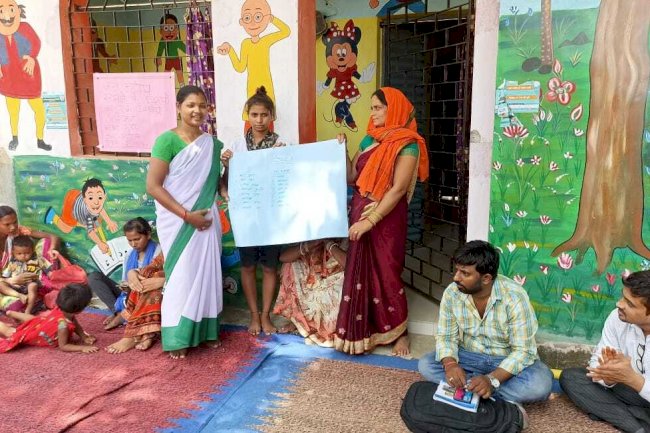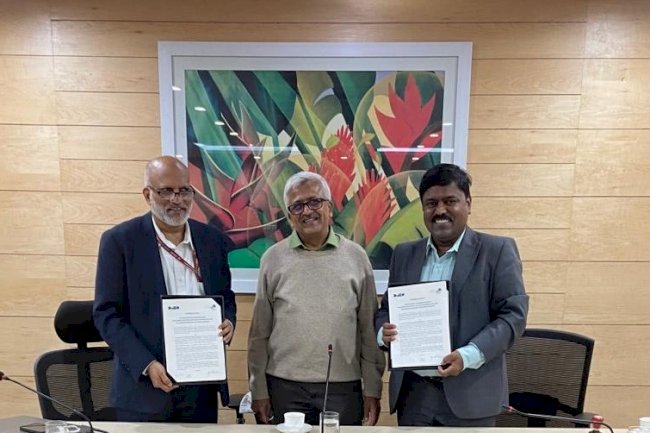GRAAM to take the lead in state’s Indian Human Development Survey
The 23-day-long training was conducted for over 80 surveyors coming from different parts of Karnataka. The training of the surveyors involved learning tests and anthropometry, tracking and identification of the household, use of survey tools, recording information methodically, gathering data from primary healthcare and government schools, and conducting interviews with the school teachers and healthcare workers.

Mysuru: Grassroots Research and Advocacy Movement (GRAAM), a leading development research organization and a policy think tank in association with the National Council of Applied Economic Research (NCAER) flagged off the third round of the Indian Human Development Survey in Karnataka.
The Indian Human Development Survey (IHDS) is one of the few large-scale studies in India to track changes in different aspects of human development in Indian states. By studying the same households over a period of nearly 20 years between 2004-5 and 2022-23, the IHDS study report would help in assessing the socio-economic changes in the past decade. The study will also assist in the policies required to address the aftereffects of the pandemic.
Inauguration of the large-scale study:
The study was inaugurated on November 29 by Dr. G Roopa, the Deputy Mayor of Mysuru, Dr. Prasad, DHO, Mysuru, Prof. Sonalde Desai, Director of NCAER’s National Data Innovation Centre, Dr. Amaresh Dubey, Professor of Economics, JNU and Dr. Basavaraju R Shreshta, Executive Director of GRAAM.
The Deputy Mayor of Mysuru in her inaugural address suggested the field surveyors to use their wisdom and observation capacity to gather more information from the field. “It is not about positive or negative data but about the quality data collected with integrity,” Dr G Roopa added.
Speaking of the purpose of collecting data, Dr. Sonalde said that the expectation of the common people would be fulfilled by providing quality data. Dr Desai asserted that the data collected belonged to the people of the nation and not the property of the researchers.
Dr. Amresh Dubey opined that the IHDS is unique as it helps us in understanding the lives of people in India and also reflects the ‘diversity of large countries like India’, suggesting that this is the largest data set downloaded in India.
Addressing the gathering, District Health Officer, Dr. Prasad said that the Human Development Index reflects the development of the nation. “The data gathered is measurable and this provides an opportunity for people to compare the indicators with other countries”, he said. Dr. Prasad further suggested that social determinants determine the life of individuals in the country and the development of a family reflected the development scenario of the country.
In his introductory remarks, Dr Basavaraju Shreshta stated that the surveyors would be visiting thousands of villages to collect quality data and this would help many institutions including governments to plan good development programs for the people. “This being a panel study, we will get to understand the transition of people over two decades from poverty to prosperity”, Dr Shreshta added.
Training process:
The 23-day-long training was conducted for over 80 surveyors coming from different parts of Karnataka. The training of the surveyors involved learning tests and anthropometry, tracking and identification of the household, use of survey tools, recording information methodically, gathering data from primary healthcare and government schools, and conducting interviews with the school teachers and healthcare workers.
The valedictory program:
The training of surveyors came to an end with Dr Shalini Rajneesh, Additional Chief Secretary, Government of Karnataka, Department of Planning, Programme Monitoring and Statistics delivering the valedictory address to encourage the surveyors to conduct the study with a focus on the development of the nation.
Chairing the program was Dr Basavaraju R Shreshta, Executive Director of GRAAM in the presence of Mr Dhanush S, Chief Planning Officer, Zilla Panchayath Mysuru, Ms Usha, Head of Programs GRAAM.
Addressing the participants virtually, Dr Shalini Rajneesh urged the participants to have the goal of developing the country while undertaking the survey. The IAS officer also suggested the participants gain insights into the status of primary healthcare centers, schools, and other resources during the survey so that it could help the government understand its infrastructure and staff system better. She also implored the surveyors to spread the word about the facilities like the Jana Spandhana program of the government of Karnataka, so that the villagers could get information about various schemes.
The survey commenced on December 27 in over 11 districts across Karnataka including Bidar, Bagalkot, Belagavi, Uttara Kannada, Davanagere, Chikkamagalur, Mangalore, Bengaluru Rural, Mandya, Mysuru, and Chamarajanagar in the first stage.
What's Your Reaction?





















